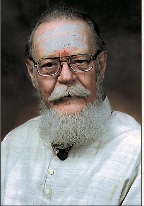By Devananda Tandavan
Historically the hospital has been an institution created as a central place to give nursing care, expert medical treatment and to study and treat acute and chronic illnesses. Today every hospital also has a teaching and monitoring responsibility for the health and wellness of its community. The larger teaching hospitals harbor specialists in various disease categories and are elaborate structures for teaching every phase of the medical profession. Hospitals now range from the barely adequate to the best there is to offer.
Commonly, the cost of running the hospital continues whether or not there are empty beds. Hospitals are the most controlled industry in the USA by federal, state and local regulatory agencies. These agencies, as well as the hospital committees, put constraints upon the quality of medical care, mortality, morbidity and medical ethics. The most recent invasion is by insurance companies, which pay most of the patient’s bills, but deny certain charges, often without any good clinical reason–all in order to keep their payouts as low as possible. They dictate the maximum length of hospital stay, regardless of the clinical condition of the patient.
The hospital’s stated mission is the preservation of life. This often means that in spite of “living wills” (orders to not resuscitate) the patient may be put on life-support machines, contrary to his wishes or those of the family. Once on the machine, removal is almost impossible, even though costs are mounting and no benefit is derived by the patient.
The greatest hazard is nosocomial (hospital acquired) infections from the many germs, viruses, toxins and allergens that do not exist at home. The patient is susceptible to massive new infections since he has no natural immunity. Indiscriminate and often unneccesary antibiotics are given–often with serious consequences and without the desired testing and matching of the antibiotic and the offending organism. Frequently this is without patient consent and considered part of the blanket permit signed at admission.
The nutritionists do not understand the concept of vegetarianism, and a patient cannot get a good vegetarian meal. Other food is also often inadequate, and it has been said that malnutrition is very common in the modern hospital without supplemental and very expensive feeding.
The current litigious nature of our society encourages excessive testing–merely to satisfy medical and hospital protocols–especially the latest and most expensive techniques.
The patient can control many of these “errors” by insisting that he be an active participant in every decision that his physician makes and demanding that some things be treated on an outpatient or hospice basis. He has the right of a second and third opinion and to know his disease and the options of treatment. Most hospitals do not allow alternative methods of treatment and deny to patients the options of allopathy, homeopathy, ayurveda, herbal medicines, acupuncture, laying on of hands, Reiki or even chiropractic adjustments.
Many other issues are contrary to the patient’s interest in the modern hospital, but we must admit that we have the most sophisticated treatment in the world today.
Dr. Tandavan, 76, retired nuclear physician and hospital staff president, lives in Chicago, where he specializes in alternative healing arts. Visit his home page at the Hinduism Today Website.


